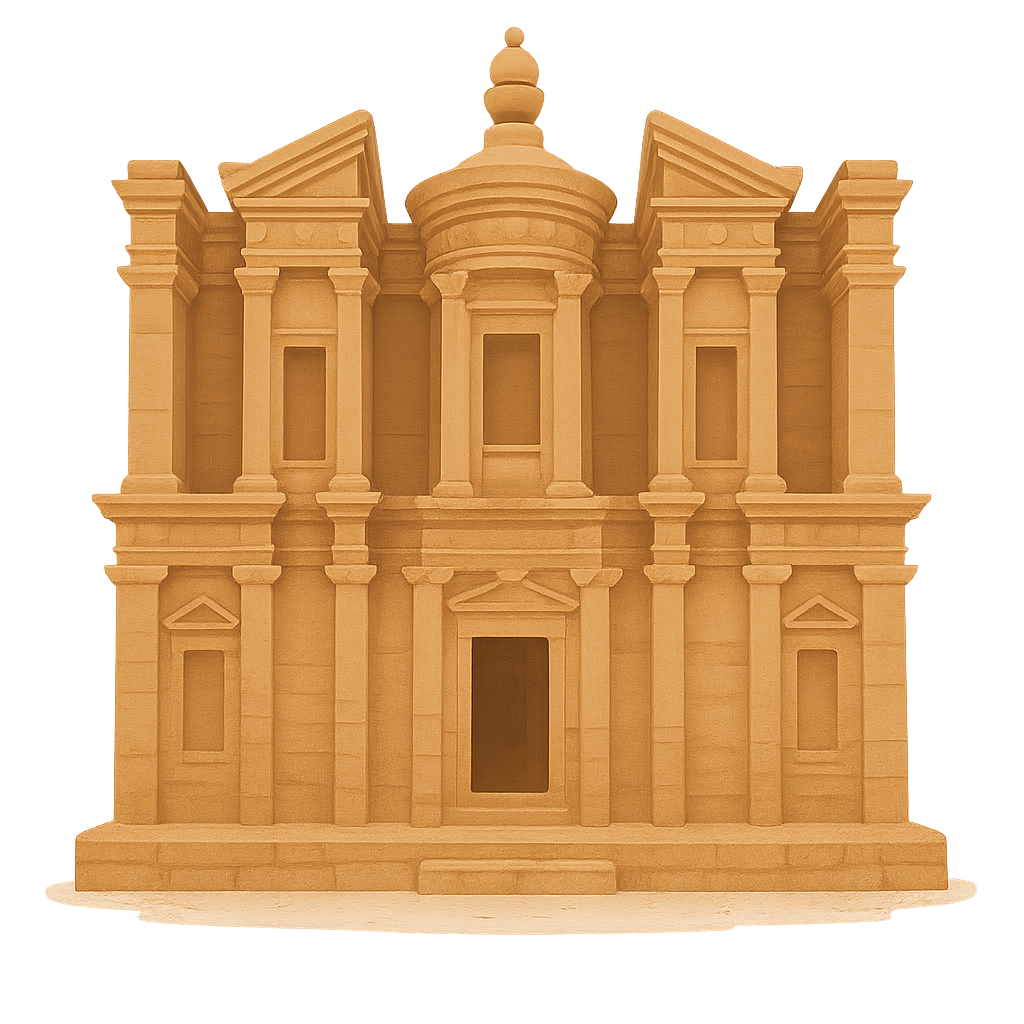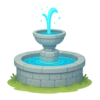The Rose City of Stone
I am hidden away in the heart of a desert, tucked behind winding canyons of colorful stone. To find me, you must walk through a narrow, magical passage called the Siq, where the rock walls tower over you like giants. Sunlight peeks through, making the stones glow in shades of red, pink, and orange, like a secret rainbow trapped in the earth. And just when you think the path will never end, you see a sliver of a magnificent building, with tall columns and detailed carvings, all glowing in the sun. It wasn't built with blocks, but carved right out of a cliff. I am Petra, the Rose City, a place some say is half as old as time.
I was brought to life more than two thousand years ago by a clever group of people called the Nabataeans. They were expert traders who traveled across the desert with long lines of camels loaded with precious spices and shimmering silks from faraway lands. They chose this secret valley to build their capital city because the high cliffs were like natural walls, keeping them safe from enemies. But the Nabataeans weren't just great traders; they were brilliant engineers and artists. They didn't build me with bricks and mortar like other cities. Instead, they carefully carved my homes, my temples, and my grand tombs directly from the living sandstone rock. Their most amazing trick was how they controlled water. In the middle of a dry desert, they carved channels and built dams and cisterns to catch every single drop of rain. This water flowed through clay pipes, bringing life to my streets and allowing beautiful gardens to grow. I was once a busy, bustling city where you could hear many languages and see treasures from all over the world being traded in my markets.
But as time went on, the world around me changed. People discovered new, faster ways to travel and trade across the sea, and fewer caravans passed through my gates. My busy markets grew quiet. Then, a powerful earthquake in the year 363 CE shook my beautiful buildings and damaged my clever water systems. It was a very sad day for me. Slowly, people began to move away to other cities, and I fell into a long, quiet sleep. For hundreds of years, I was a secret known only to the local Bedouin people, who made their home in my caves and canyons. To the rest of the world, I became a legendary lost city, just a whisper on the desert wind, a story travelers might tell around a campfire.
My long, peaceful sleep ended in the year 1812, when a brave Swiss explorer named Johann Ludwig Burckhardt heard the stories of a lost city and came searching for me. He disguised himself so he could travel safely and was amazed by what he found. He shared my story with the world, and I was lost no more. Today, I am no longer quiet. People from every corner of the globe come to walk through the Siq and gaze up at my rock-cut wonders, like the famous Treasury and the grand Monastery. I am now a UNESCO World Heritage site, protected so that everyone can learn from my story. I am a reminder that even things that are lost can be found again, and that the cleverness and creativity of people from long ago can still inspire us all.
Activities
Take a Quiz
Test what you learned with a fun quiz!
Get creative with colors!
Print a coloring book page of this topic.















